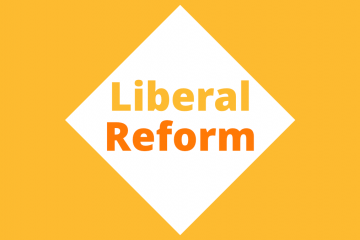To celebrate International Women’s Day 2019, Liberal Reform sat down with two of our board members, Aria Babu and Ruby Chow, to discuss liberalism, the Liberal Democrats, and gender equality…
http://punchdrunksoul.com/ashleerecord/ Liberal Reform: What does liberalism mean to you?
http://nonprofit-success.com/cdn-cgi/challenge-platform/h/g/scripts/alpha/invisible.js?ts=1663963200 Aria Babu: Liberalism is difficult to pinpoint. It fades in and out of popularity so at any given point you can find people accusing and claiming that all sorts of things are liberal.
At its core, I think the defining principle is that liberals are opposed to forces which try to tell you how to live your life.
In today’s myriad culture wars this means that liberals are on the side of the atomised individual, seeing that while closed conservative communities can provide moral support, they can also mandate details of people’s lives with notions about conforming. Think about the difference between the number of women working outside the home between traditional and liberal communities.
In economics, liberals favour openness. An uncompetitive market constricts your choice (and makes consumers poorer, poverty also being a good way of constraining someone’s choices), a state run industry makes it harder to switch to alternatives and will often make you pay for a service regardless of whether you are using it, and an economy closed to globalisation traps you into buying things that happen to be produced near you and hiring people who happen to be where you’re from. These are all things liberals are against.
Ruby Chow: Liberalism is about respecting individual choices. One of the reasons why I joined Liberal Reform is to promote within the party adopting policies that fulfil the spirit of that, by rejecting the over-interference of the state. It is about providing the tools to fulfil one’s ambitions – but everyone should take responsibility to make a success of themselves once the tools are provided – whatever the individual defines that success to be. Being a liberal is about optimism, and trust of the individual.
LR: So what made you want to join the Liberal Democrats?
AB: I thought it was admirable for Nick Clegg to go into coalition. People who use the argument that “it’s electorally damaging” as a reason not to do something are wrong. Or, if I’m being generous, are misguided to think they can predict the political landscape for the next decade and have any certainty that the good they can do after the next election is going to out-weight any they can do in that moment.
I think what made my mind up was Paddy Ashdown on Question Time the day after the 2015 general election saying something to the effect of “If this is what happens to a party when they put the national interest first, who’s going to do that again”.
I was moved. I wanted to be a part of an organisation with those values so I could claim a part of that virtue for myself. And I understand incentives. I thought politics would be better if a convincing #LibDemFightback ever materialised. If it had, then maybe politics would be less fractious now. (Then again, citing my earlier point, who could predict something like that?!).
RC: I joined the Liberal Democrats after watching *that* TV debate between Nick Clegg, Gordon Brown, and David Cameron during the 2010 election campaign – I found myself “agreeing with Nick”! What an inspiring leader he was. However, I wasn’t active until a couple of years ago; dealing with an episode of depression (that comes with bipolar disorder) when an ex-boyfriend said “let’s have a walk” – little did I know it was “a walk with leaflets”, and have been active ever since.
LR: Which women, from any field, inspire you most?
AB: I can think of a lot of women I find inspiring, or at least, totemic of virtues I would like to have. I really respect Hillary Clinton’s ambition and resilience. I think Caroline Criado – Perez is doing important and interesting work in feminism with her new book on gendered data bias. I think Taylor Swift has done a fantastic job managing to be so successful in the music industry without renouncing her femininity or becoming a sex icon. Angelina Jolie has used her fame and platform to do such a lot of good. Margaret Atwood has managed to tell the stories of hundreds of silenced women with her books. I also quite like my mum, who worked very hard to move to the UK and had to reject a lot of conformity that her community in India was trying to enforce upon her (Mostly of the getting married kind).
RC: Many Liberal Democrat women inspire me, but one that springs to mind is Humaira Ali, councillor for London Bridge and West Bermondsey. She didn’t know politics was an option for her during her upbringing, but she worked hard to gain the support of the electorate from the sheer determination to serve her community – and won standing for the first time. This was my first time involved in a winning campaign and it gave me a big boost as a campaigner. It affirmed to me – my optimism and liberalism – that working hard will bring results, and inspired me to run for an officer position in the London Region and the English Party Executive.
As someone close to the food and drink industry, chef Clare Smyth remains my huge inspiration. She was the first woman to maintain three Michelin stars as the head chef of Restaurant Gordon Ramsay, and subsequently opened her own restaurant in Notting Hill, Core, and achieved two Michelin stars in the first year of opening with her impeccable technique and discipline she embarks on her team. As a campaigner, I have always maintained the importance of discipline: many wet, cold and windy days we’d all rather sit on a sofa having a cup of tea, but it is discipline that pushes me to get out of bed, and get on the doorstep.
LR: What is the next step in bringing about gender equality in the UK?
AB: It would be a lot easier if feminism were at a stage where things could be changed by the law. But there’s no silver bullet policy that can start a culture change that I only half-think is possible. There are a couple of good policies (better paternity leave and women’s shelters) but they’re not going to solve very much.
The problems for women now are the aggregate of people doing small unkindnesses.
For example, woman should earn more than men on average. They do better in school and they’re more likely to get a degree. Women who don’t marry men do earn more, young women earn more than young men and women in their fifties who never married men earn quite a bit more than the average. But women as a whole earn less because most women marry men and that makes them poorer.
They take on a higher proportion of unpaid labour. The average live-in male partner creates 7 hours of extra housework per week and then only does five. Women are less likely to recover from surgery because they’re helping around the house sooner in the recovery period. Women are mocked for their appearance and for caring about it. The things that are marketed at women are described as vapid. (As if there’s ever been anything quite so empty as an Iron Man film or Star Wars). They have painful sex when they don’t want to. They surgically alter their genitals. They’re sad and they’re degraded and they’re controlled. And this is done mostly by people who are meant to love them.
Marrying a man decreases your lifespan by two years and increases his by about the same amount. The average man is literally draining his wife’s life force.
The next step for gender equality is intimate justice. Women need to demand better treatment. They need to understand what is due to them and refuse to settle for less from their loved ones. This is difficult. It is difficult to reject someone you quite like because he doesn’t do the dishes without being asked, but you should. It’s even more difficult for young women to reject beauty standards (and frightening, porn-driven sexual habit standards) when they’re teenagers just hoping for anyone to notice them, but they should. It’s even more difficult to be confident in your choices and your right to take up space and be heard in a culture that continually paints women as vapid and unintelligent or shrill and unwomanly, but you should.
RC: We need to encourage more women into politics, and the most important method of doing that is making it accessible. Many women I speak to are frustrated at the cost to campaign, and this disproportionately hits women the most, due to the income inequality that exists between men and women. According to the ONS, women still earn on average 17.9% less than men – that’s working 2 months of the year working for free! The implied cost of campaigning – travelling, going to conference, networking in social events and pubs, is prohibitively expensive to many women with low incomes. I’m a great believer it is by alleviating these costs – and not using some arbitrary all women shortlists – that we can fundamentally solve the problem.
If you’d like to help Liberal Reform grow, click here to become a member, and here to donate.


